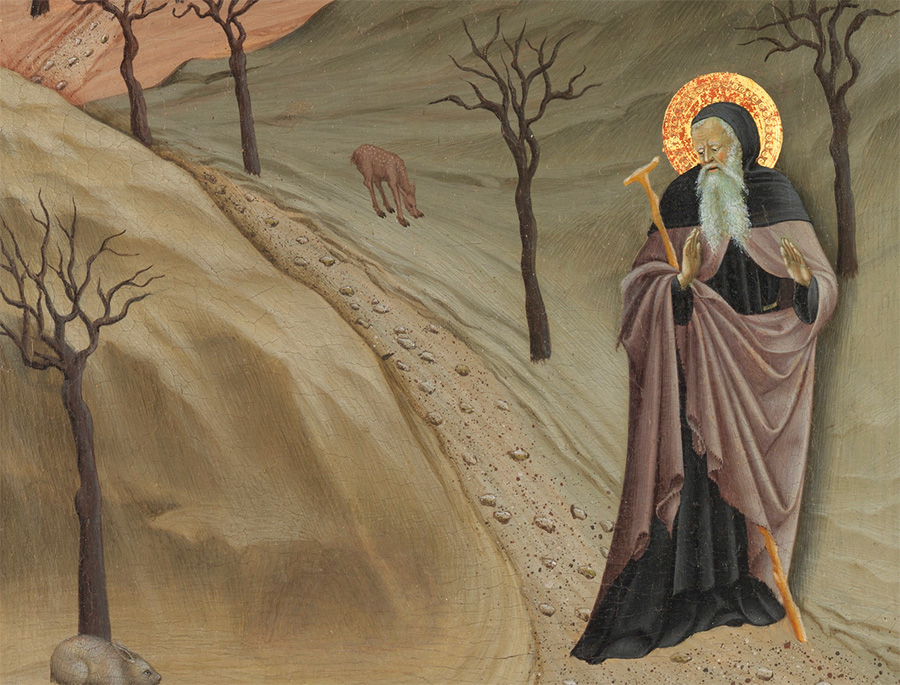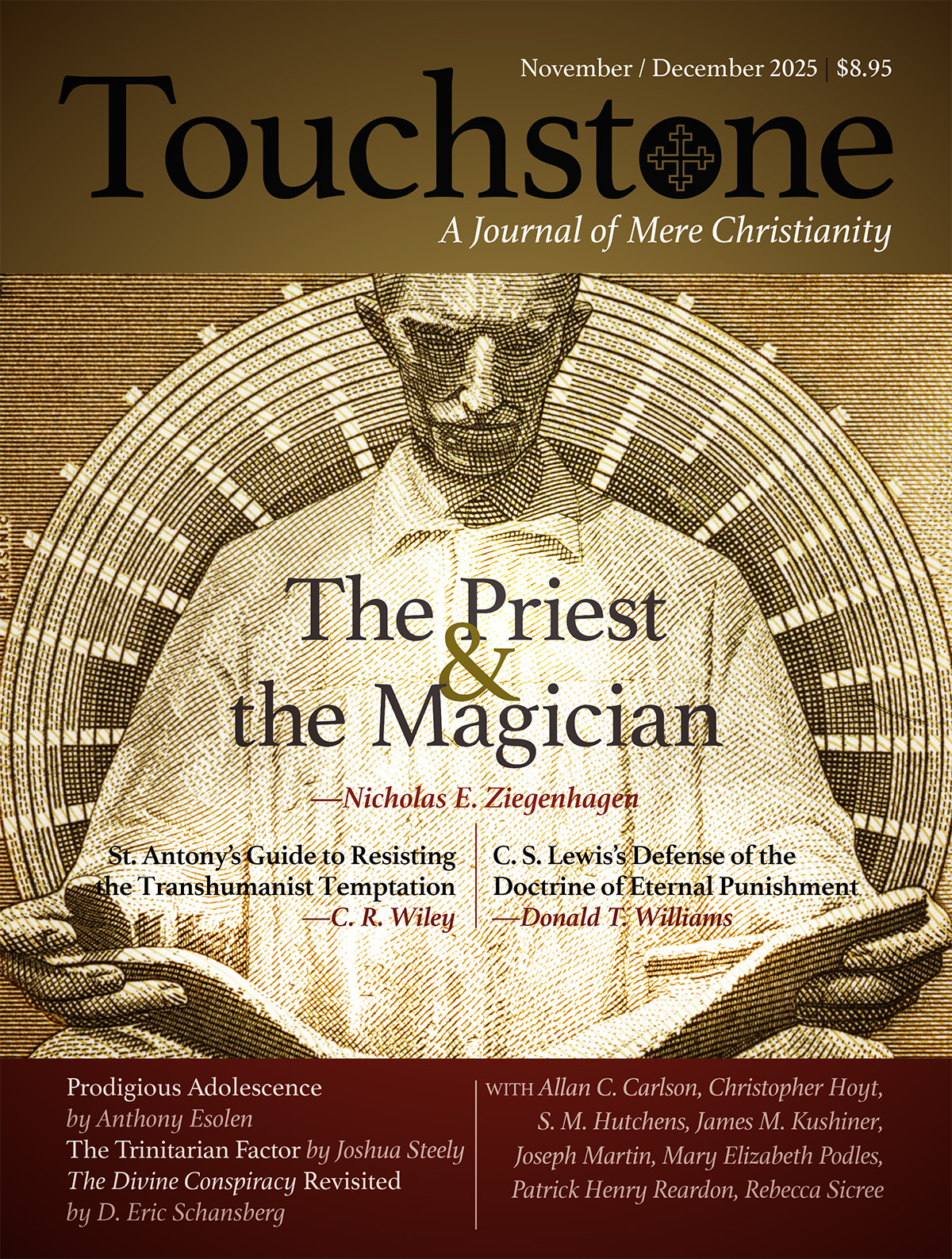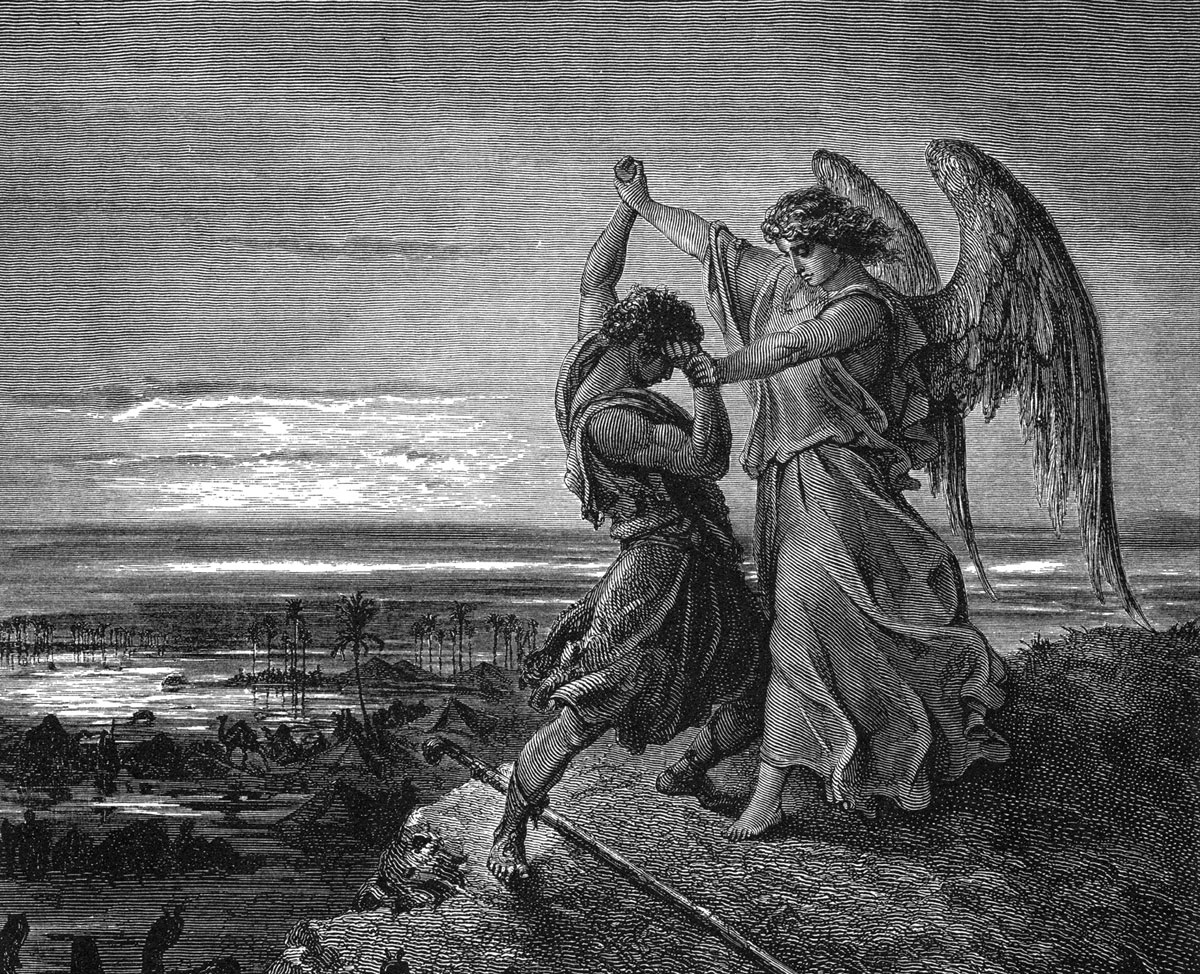Making the Best of Dystopia
St. Antony’s Guide to Resisting the Transhumanist Temptation
Let’s consider the art of prognos-tication: we’re all gamblers, you know; we’ve no choice. Tomorrow is coming whether we like it or not, and the lives we lead today are the bets we’re making on it.
Since we’re condemned to bet, how should we go about this peering into the future? I’m no Nostradamus, to which a friend told me, “Neither was he.” But G. K. Chesterton had some amusing observations on the practice, made at the beginning of his dystopia, The Napoleon of Notting Hill:
The human race, to which so many of my readers belong, has been playing at children’s games from the beginning, and will probably do it till the end, which is a nuisance for the few people who grow up. And one of the games to which it is most attached is called, “Keep tomorrow dark,” and which is also named . . . “Cheat the Prophet.” The players listen very carefully and respectfully to all the clever men have to say about what is to happen in the next generation. The players wait until all the clever men are dead and bury them nicely. They then go and do something else. That is all. For a race of simple tastes, however, it is great fun.
Chesterton’s fun didn’t end there. He teased out the method clever men employ to predict the future:
All these clever men . . . [prophesy] with every variety of ingenuity what [will] happen soon, and all [do] it in the same way, by taking something they [see] “going strong” as the saying is, and carrying [it] as far as ever their imagination [can] stretch. This, they [say, is] the true and simple way of anticipating the future. . . . [J]ust as when we see a pig in a litter larger than the other pigs, we know by an unalterable law of the inscrutable it will some day be larger than an elephant—just as we know, when we see weeds and dandelions growing more and more thickly in a garden, that they must, in spite of all our efforts, grow taller than the chimney-pots and swallow the house from sight, so we know and reverently acknowledge, that when any power in human politics has shown for any period of time any considerable activity, it will go on until it reaches the sky.
I concede the point: the future will surprise us. But here’s the trouble with Chesterton’s jocular common sense. He published it in 1904—before two world wars, the Bolshevik Revolution, the Great Depression, atomic weapons, Mao, the Sexual Revolution, and at least 100 million dead from war, genocide, starvation, and abortion—and that’s a conservative estimate. A bitter irony is that theological liberals believed the twentieth century would be “The Christian Century.” Would it have been a waste of time to suggest that things might take a turn for the worse?
Preparing for the worst, “prepping” (as it’s called), has its own downside. What do you do with a million-dollar bunker you’ve built in Montana if things don’t get worse, at least not right away? What if they even improve? Is there a way to prepare for any future you might find yourself in?
That’s what I hope this little meditation amounts to, a sort of middle way, a hedge against the worst without leaving you with a lifetime supply of Spam if things turn out all right.
Welcome to Dystopia
Check out any library and you’ll see that dystopias have multiplied since the Industrial Revolution. But a perusal of the literature reveals they’re often premised on technology making the world worse, not better—the telescreens of 1984, for instance, or simply television taken to the nth-level, as in Fahrenheit 451. Considering how many of us live in air-conditioned splendor, why are we so pessimistic? Perhaps the reason is that we already live in dystopia, and we’ve been here since the calamity in the Garden. (What could be worse than a story in which everyone dies in the end?) And we know what people are capable of, and how our marvels have been used to maim and kill millions of people. History, you could say, is the flavor of the month; dystopias come and go, but Dystopia remains.
Speaking of flavors, what’s the flavor of our time? I think it’s a thin reduction of classical liberalism (rapidly evaporating) with generous portions of Marx and Nietzsche poured in.
C. R. Wiley is a pastor living in the Pacific Northwest. He is the author of The Household and the War for the Cosmos and In the House of Tom Bombadil. He is also a co-host of The Theology Pugcast. He is a senior editor of Touchstone.
subscription options
Order
Print/Online Subscription

Get six issues (one year) of Touchstone PLUS full online access including pdf downloads for only $39.95. That's only $3.34 per month!
Order
Online Only
Subscription

Get a one-year full-access subscription to the Touchstone online archives for only $19.95. That's only $1.66 per month!
bulk subscriptions
Order Touchstone subscriptions in bulk and save $10 per sub! Each subscription includes 6 issues of Touchstone plus full online access to touchstonemag.com—including archives, videos, and pdf downloads of recent issues for only $29.95 each! Great for churches or study groups.
Transactions will be processed on a secure server.
more from the online archives
calling all readers
Please Donate
"There are magazines worth reading but few worth saving . . . Touchstone is just such a magazine."
—Alice von Hildebrand
"Here we do not concede one square millimeter of territory to falsehood, folly, contemporary sentimentality, or fashion. We speak the truth, and let God be our judge. . . . Touchstone is the one committedly Christian conservative journal."
—Anthony Esolen, Touchstone senior editor










